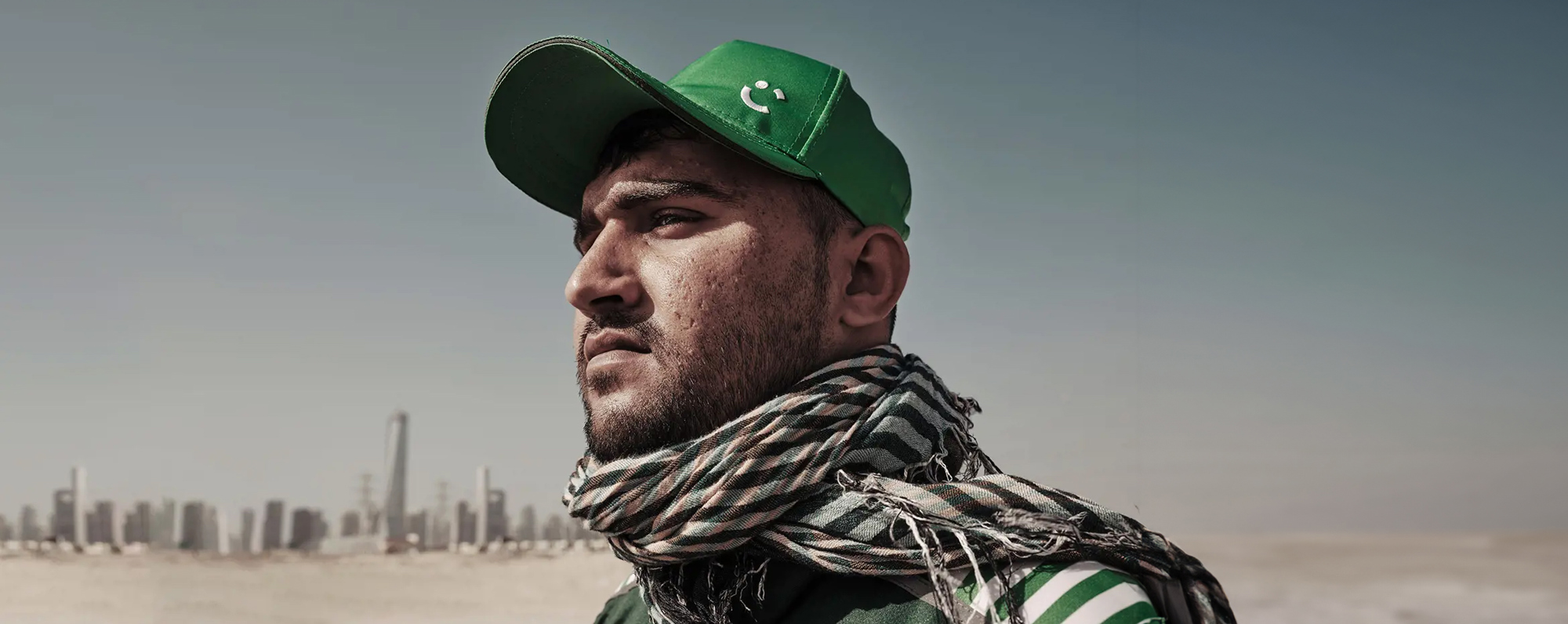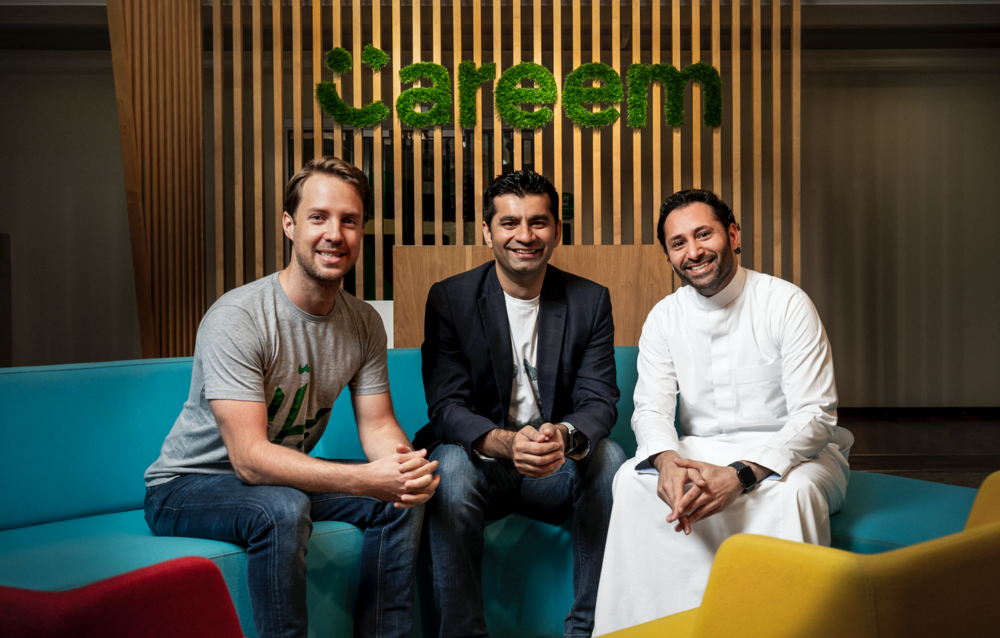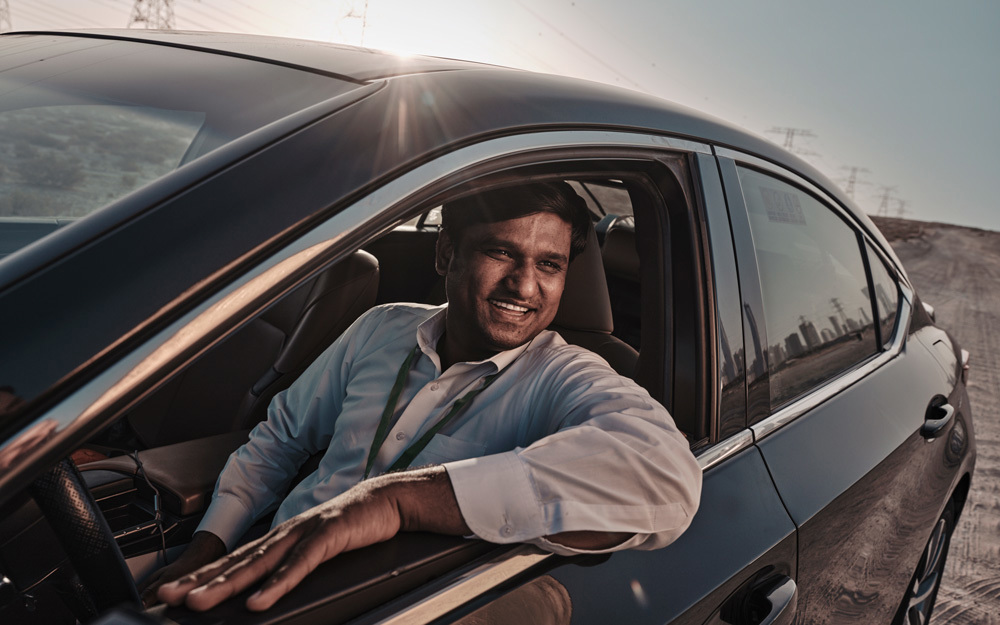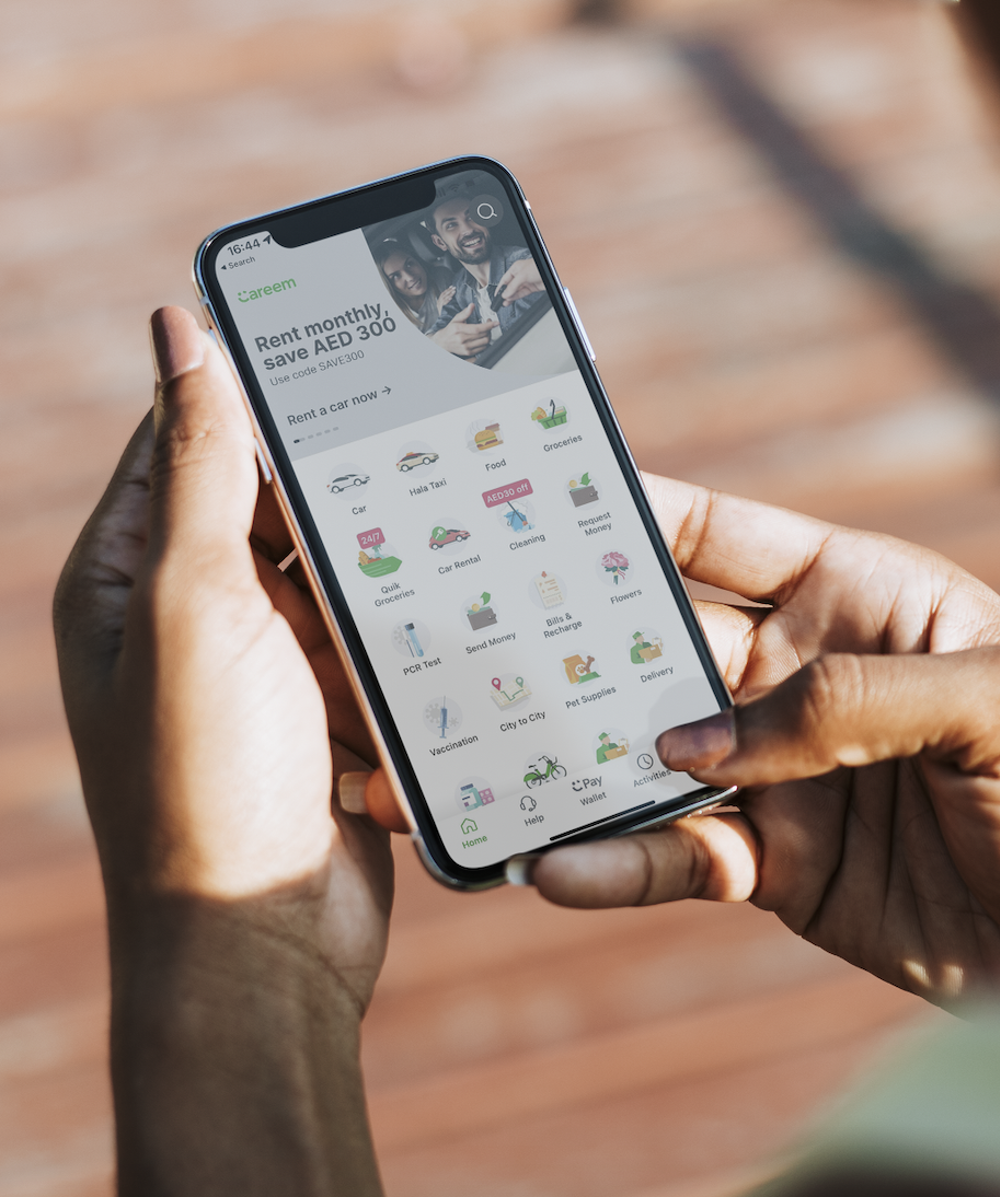More than a unicorn
By trailblazing the use of technology to support communities across the region, Careem is proving it is more than the Middle East’s first unicorn

By trailblazing the use of technology to support communities across the region, Careem is proving it is more than the Middle East’s first unicorn

The Middle East’s first unicorn, Careem has trailblazed the use of technology to help support communities in need across the region. As the company, which was acquired by Uber in 2020 for $3.1bn, has grown - now serving 80 cities in 10 countries - so too has its ambition to live up to its name, which means "generous" in Arabic.
In addition to its strong focus on mission and how it treats its staff, Careem has also been an active supporter of community-based development initiatives and it was one of the first tech firms in the region to leverage its app to collect charitable donations.
Since its inception, Careem has worked with more than 30 different charity and development partners, supporting a range of projects. These have included helping refugees in the Levant, building accessibility infrastructure in Egypt, planting mangroves in Pakistan, and providing Iftar meals for blue-collar workers in the UAE.
Mudassir Sheikha and Magnus Olsson were so frustrated by how difficult it was to find, book, and pay for a taxi in the region, that in 2012, they launched a web-based ride hailing service focussing on corporate customers. The former McKinsey consultants wanted to simplify the process of transportation but also build an organisation that would improve people’s lives.
“My purpose was to build something, and it had to be meaningful,” says Olsson, who after a near-fatal brain bleed at the age of 29, quit his day job and set out to find a new purpose.
Careem began operations in Dubai with a team of just 20 drivers (or Captains, as Careem calls them) but expanded rapidly, and a year later had launched a mobile application to also facilitate bookings and serve customers in Doha and Riyadh.
Before long, the company had entered several new markets, including Egypt and Pakistan, and had grown its community by more than a million Captains. In 2019, Careem became the Middle East’s first unicorn (a start-up with a valuation of at least US$1bn) and a year later, was acquired by Uber for $3.1bn.
Today, the company operates in more than 80 cities across 10 countries, with more than two million Captains and some 50 million registered app users.
Careem has also evolved from being a simple ride-hailing company to being a 'super app', offering a full suite of on-demand services, ranging from food and grocery delivery and courier drops to money transfers, car rentals, cleaning services and even Covid-19 testing.
The company’s decision to enter markets such as Palestine, Iraq, and Lebanon, which can be ignored by global corporations due to local complexities, is a reflection of Careem’s commitment to purpose. While setting up in these locations has of course grown the company’s market share, it has also created thousands of jobs, bolstering stagnating economies where unemployment rates are high.
Moreover, Careem’s entry into Pakistan and Saudi Arabia, where public transportation had long been challenging, unsafe and unreliable, especially for women, created not just jobs but also new ways for previously under-served communities to get to schools, workplaces and hospitals.
This focus on purpose played a large part in Abdullah Elyas joining the company as the third co-founder in 2015, after Careem acquired his Saudi-based technology firm Enwani. “Mudassir and Magnus were offering me the opportunity to do well and to do good at the same time, and I was completely sold from that moment,” he recalls.

Careem's Mudassir Sheikha and Magnus Olsson, with their co-founder Abdullah Elyas. Photo: Careem
Careem, which means generous in Arabic, soft launched in 2012 during the holy month of Ramadan, when Muslims traditionally take time for spiritual reflection and giving back. The company has worked hard since to live up to its name, and be a socially responsible corporation, eschewing the approach taken by many other gig economy giants who have received heavy criticism for how they treat their staff.
Careem calls its drivers “Captains”, a term designed to highlight the important role they play in the core business and as champions of the brand on the ground. It is also a term of respect for a profession that can be looked down upon in some parts of the world.
Many of the company’s Captains, particularly in GCC countries, are expatriate workers, supporting their families abroad through remittances. Careem has been committed to supporting their Captains’ wellbeing and ensuring they have stable and sustainable revenue streams.
When the pandemic-related lockdowns began in early 2020, Careem’s business, like most, took a huge hit. Being a company built around mobility, Careem had to halt its transportation and delivery services, which heavily impacted Captains’ revenue streams. This inspired Careem to launch a Captain Fund, raising $800,000 to support Captains and their families across the region.
The company has also leveraged existing partnerships with regional and international players like Du, Mastercard, and ADCB in several markets to support Captains with daily expenses, such as subsidising internet packages, and providing discounts on fuel and utility bills.
In the UAE, Careem has partnered with the Pakistan Association of Dubai to provide subsidised healthcare for Captains. And, most recently, Careem signed a SR1.1 bn ($293m) agreement with the Social Development Bank in Saudi Arabia to provide SR150,000 ($39,000) in vehicle financing for each Captain’s vehicle, in low instalments for a period of three years.

Careem calls its drivers “Captains”, to both highlight the important role they play in the core business and as champions of the brand on the ground, as well as to show respect for a profession that can be looked down upon in some parts of the world. Photo: Careem
In addition to its strong focus on mission and how it treats its staff, Careem has also been an active supporter of community-based development initiatives and it was one of the first tech firms in the region to leverage its app to collect charitable donations.
Since its inception, Careem has worked with more than 30 different charity and development partners, supporting a range of projects. These have included helping refugees in the Levant, building accessibility infrastructure in Egypt, planting mangroves in Pakistan, and providing Iftar meals for blue-collar workers in the UAE.
In the last two years alone, through donations and fundraising, the company has generated more than $3.3m to support development, humanitarian, and empowerment initiatives across the region.
A key enabler of this giving was the company’s loyalty programme, Careem Rewards. Under the scheme, which was launched in 2018 (but has since been discontinued – see below), customers were able to earn loyalty points from transactions on the Careem app, and then use those points to either accrue future discounts, air miles, or make a donation to a charity of their choice.
Careem was a regional pioneer of in-app charitable donations, and their model has since been copied widely by other technology-driving service platforms. “The simple act of adding a small button to the app enabling customers to give, made a huge difference to our communities,” explains Olsson.
“The simple act of adding a small button to the app enabling customers to give, made a huge difference to our communities."
Magnus Olsson, co-founder, Careem

From ride-hailing platform to super-app, Careem offers a plethora of services and ways to give back. Photo: Careem
In early 2021, Careem launched a new subscription model, giving its customers the opportunity to buy monthly packages and secure discounts. In parallel, it phased out its loyalty programme, Careem Rewards, which it had used to collect donations for charities, and instead introduced “Donations”, a direct service selectable from the landing page of the app, to UAE customers. Now, instead of adding a donation to an individual service, customers in the UAE can make direct donations to three different causes.
Careem is currently supporting licensed fundraising appeals for: UNICEF, to support digital learning for young people in Lebanon, Jordan, and Egypt; Dubai Cares, to help the region’s underprivileged children access quality education; and UNHCR, providing refugees and displaced families with financial assistance to help themselves.
“Everyone deserves a chance to start life off on a level playing field, to be safe, to have access to meals, and to support themselves financially,” explains Vimbai Midzi, senior corporate affairs manager at Careem. “If we can do our part to make that a reality for more people, we’re fulfilling our purpose as a company. We are thrilled to partner with some of the region’s most impactful not-for-profit organisations to achieve this.”
Nominated charities in other markets, include: the Iraq Builders, a local NGO supporting the rebuilding of damaged homes by conflict; The Citizens’ Fund in Pakistan, which provides access to quality education in underserved communities; the Qatar Cancer Society, supporting access to treatment for breast cancer patients; the SOS Children’s Village in Lebanon; and Tabara3a, Saudi Arabia’s national donation platform.
Whether large international aid agencies, or smaller organisations suggested by in-country staff, all the charities Careem raises funds for are chosen to match three core pillars: Education, Economic Empowerment and Emergency Relief.
This new direct donation feature is due to be rolled out in Saudi Arabia, Qatar, and Jordan in the coming months, and Careem is also looking to add the charity car service as a more permanent feature on its app. Currently, it offers this car type in Pakistan in partnership with the Shahid Afridi Foundation, and is using the feature to support those affected by the recent floods in Balochistan and Sindh.
“As a home-grown enterprise, Careem has always relied on local talent, and believes deeply in making sure tech talent continues to grow."
Vimbai Midzi, senior corporate affairs manager, Careem
In addition to collecting donations, Careem also tries to empower local businesses in the markets where it works and support the upskilling of technology professionals.
In Jordan, for example, the company has recently partnered with the Microfund for Women, a private not-for-profit shareholding microfinance company. The idea is to not only channel app-based donations to the organisations but also help the women become merchants to be able to sell their products via the Careem app.
Similarly, the company has also worked with Gaza Sky Geeks, a start-up incubator and accelerator that also houses Palestine's first full stack coding academy, supported training and offering internships to Gaza-based tech talent. In 2021, it launched the Falcon Programme, a graduate training programme to tap engineering talent from emerging markets, including Palestine. Careem now has several engineers from the programme as full-time employees.
“As a home-grown enterprise, Careem has always relied on local talent, and believes deeply in making sure tech talent continues to grow and be part of building large, sustainable businesses in the region,” says Midzi.
Careem is the Middle East’s biggest start-up success story. Yet, despite the phenomenal growth in the company’s geographical reach and its product offering, it has stayed true to its original purpose: to simplify and improve people’s lives and build an organisation that inspires. Through this mission it has become a regional leader in corporate social responsibility (CSR).
The UN Refugee Agency, UNHCR (2018-2020). The markets served by Careem have millions of refugees and displaced people, whose mobility - both literally and metaphorically - is affected by their situation. Careem wanted to make a difference for these communities, so in 2018 launched a special car type aimed at supporting refugees with essential needs. For every ride, customers would pay an extra Dhs 3 (US$0.82) which would be set aside for UNHCR’s operations in refugee camps in the region. The company raised more than $400,000 in two years.
Lebanon port explosion, World Food Programme (2020). Careem began operations in Lebanon in 2017, and when the August 2020 Beirut blast reduced a large part of the Lebanese capital to rubble, both staff and customers wanted a way to help from where they were in the region. Careem’s contribution supported WFP’s cash assistance programme to beneficiaries who were affected by the blast, to help them resume and rebuild their lives. Careem raised $50,000 from customer pledges and matched donations by management.
India Covid-19 relief (2021). Although Careem is not operational in India, many of the company’s Gulf-based captains are from there. When a deadly second wave of the coronavirus hit India’s overwhelming local health services, the company combined forces with Hala, the Dubai Taxi company, to raise $212,000 to buy oxygen tanks and PCR tests to send to the country.
Gaza Relief, World Food Programme (2021). In May 2021, there was a surge in violence against Palestinians in Gaza. Careem colleagues and captains in Gaza were in urgent need of help, so the company mobilised customers in Pakistan, Iraq, and Jordan raising $15,000 for the WFP’s relief mission in the territory. After being forced to suspend services due to the conflict, Careem also provided equivalent to two weeks of income to all its captains there, and waived customer fares on rides to the local blood bank to encourage people to donate blood.
It's a good idea to use a strong password that you're not using elsewhere.
Remember password? Login here
Our content is free but you need to subscribe to unlock full access to our site.
Already subscribed? Login here